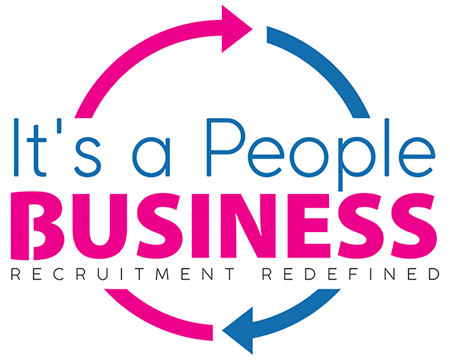Which is Right for Your Business?

When it comes to running a successful business, one of the most important decisions you'll have to make is whether to outsource certain tasks or hire in-house employees to handle them. Both options have their advantages and disadvantages, and it's up to you to decide which approach will work best for your organisation. There are a variety of factors to consider when making this decision, including cost, quality of work, control, and flexibility. Outsourcing can be an attractive option for businesses looking to save money and reduce their workload. By outsourcing tasks to a third-party provider, companies can often access higher-quality work at a lower cost than they would be able to achieve in-house. Outsourcing also allows companies to access specialised expertise that they may not have in-house. However, outsourcing can also come with some drawbacks, including a lack of control over the work being done, potential communication issues, and a lack of flexibility if changes need to be made.
In-house employees exhibit greater flexibility in adapting to business changes.
On the other hand, hiring in-house employees can also have its advantages. In-house employees are dedicated solely to your business and can provide a higher level of loyalty and commitment. They tend to have a deeper understanding of the company culture, which can lead to better collaboration among team members. In-house employees also allow for greater control over the quality of work being produced, as you have direct oversight and can provide immediate feedback. Additionally, in-house employees can be more flexible in adapting to changes in the business, as they are already familiar with the company's goals and objectives. Ultimately, the decision between outsourcing and in-house hiring will depend on your business's unique needs and resources.
1. Consider your budget and resources.
1. Consider your budget and resources.

When considering whether to outsource or hire in-house, one of the most important factors to consider is your budget and resources. It's essential to know how much you're willing to spend on hiring and maintaining an in-house team versus outsourcing to an external provider. Keep in mind that in-house hiring involves a lot of overhead costs, such as salaries, employee benefits, office space, and equipment. On the other hand, outsourcing allows you to save on these costs and pay only for the services rendered. However, it's essential to ensure that your outsourcing partner has the necessary resources to deliver quality work consistently. Ultimately, the decision on whether to outsource or hire in-house comes down to a careful analysis of your budget and resources and weighing the pros and cons of each option.
2. Assess your company's expertise.
2. Assess your company's expertise.

Outsourcing vs. In-House Hiring: Which is Right for Your Business? When considering whether to outsource or hire in-house, it's important to assess your company's expertise. What are your core competencies? What tasks or projects can you confidently handle on your own, and which ones require specialised knowledge or skills? Outsourcing can be a smart choice for tasks outside of your company's core competencies or areas where you lack specialised expertise.
Free up your in-house team to focus on their core responsibilities
Free up your in-house team to focus on their core responsibilities
By outsourcing tasks to experts in their fields, you can ensure a high level of quality and efficiency while freeing up your in-house team to focus on their core responsibilities. On the other hand, if your company has a strong foundation in a particular area, it may be more cost-effective and efficient to hire in-house staff to handle those tasks. Ultimately, the decision to outsource or hire in-house should be based on a careful assessment of your company's strengths and weaknesses.
3. Weigh the benefits of outsourcing.
3. Weigh the benefits of outsourcing.

Outsourcing vs. In-House Hiring: Which is Right for Your Business? When determining whether to outsource or hire in-house, one key factor to consider is the potential benefits of outsourcing. For many businesses, outsourcing can be a cost-effective solution that provides access to specialised expertise and resources that may not be available in-house. Outsourcing can also help to reduce overhead costs associated with maintaining a full-time staff, such as payroll taxes, benefits, and office space.
Outsourcing offers increased staffing flexibility
Outsourcing offers increased staffing flexibility
Additionally, outsourcing can provide greater flexibility in terms of staffing, allowing businesses to scale up or down as needed without the costs and administrative burden of hiring and firing employees. However, it is important to weigh the potential benefits of outsourcing against the potential risks and disadvantages, such as reduced control over the quality of work, the need to manage and communicate with external providers, and the potential for data security and confidentiality risks. Ultimately, the decision to outsource or hire in-house will depend on your business needs and goals, as well as the specific advantages and disadvantages of each approach in your particular industry and market.
4. Evaluate the risks and challenges.
4. Evaluate the risks and challenges.
When considering Outsourcing vs. In-House Hiring, it's important to evaluate the risks and challenges involved in each option. Outsourcing can be a cost-effective solution for businesses looking to cut costs and streamline specific tasks. However, outsourcing also comes with certain risks, such as the possibility of communication barriers, lack of control over the outsourced work, and potential data security issues.
In-House Hiring facilitates increased collaboration within the company.
In-House Hiring, on the other hand, can provide better control over the work being done and allow for greater collaboration within the company. However, in-house hiring can be more expensive and may require additional resources such as training, benefits, and payroll management. It's important to weigh the risks and benefits of each option and consider the specific needs and goals of your business before making a decision.
Read More: Mastering the Main Stages of Any Recruitment Discussion: A Practical Guide for Employers
5. Determine the best fit.
5. Determine the best fit.

When deciding between outsourcing and in-house hiring, it is important to determine the best fit for your business. Consider the nature of the work that needs to be done, the level of expertise required, and the amount of time and resources available. Some tasks may be more efficiently completed by outsourcing to specialised contractors or agencies, while others may require the knowledge and skills of an in-house employee.
Read More: The Benefits of Working with a Flat Fee Recruiter
Additionally, the size and budget of your business may also play a role in your decision. Evaluate all factors carefully and make a well-informed decision based on what will best serve your business in the long-term. Ultimately, the choice between outsourcing and in-house hiring will depend on your specific business needs and goals.
Conclusion
Conclusion
Deciding between outsourcing and in-house hiring is not a one-size-fits-all solution for businesses. Each approach has its own benefits and challenges, and it's up to each company to determine which option is the best fit. Factors such as budget, expertise, and company culture should all be taken into consideration when making the decision. Ultimately, the key is to choose the approach that aligns with the goals of your business and helps it achieve long-term success.
Contact It's a People.Business today to learn how we can help your organisation. Our team of recruitment professionals can help you develop a cost-effective and efficient hiring strategy that aligns with your business goals. Contact us today to learn more and take the first step towards building a strong and talented team for your small business.